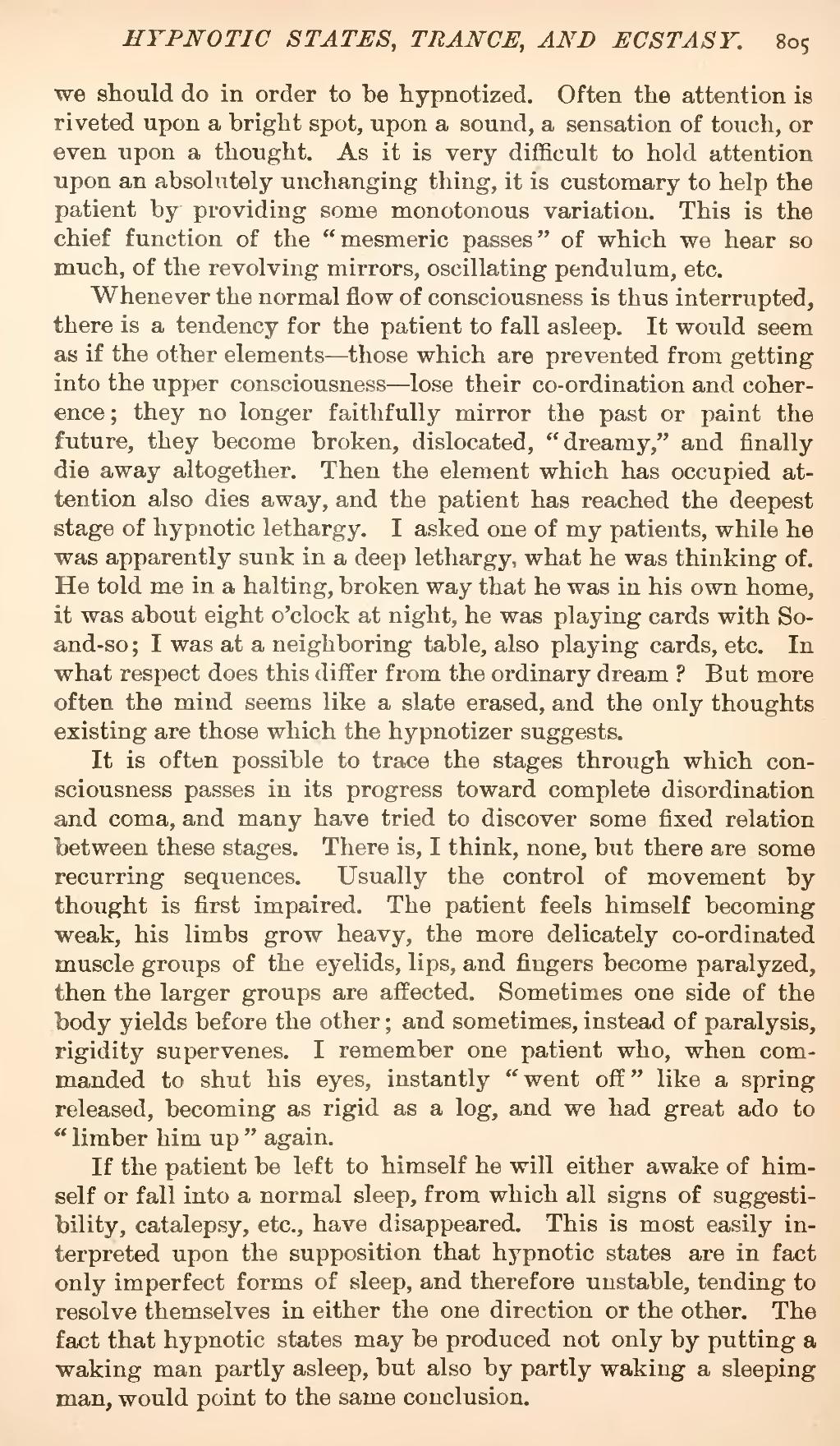we should do in order to be hypnotized. Often the attention is riveted upon a bright spot, upon a sound, a sensation of touch, or even upon a thought. As it is very difficult to hold attention upon an absolutely unchanging thing, it is customary to help the patient by providing some monotonous variation. This is the chief function of the "mesmeric passes" of which we hear so much, of the revolving mirrors, oscillating pendulum, etc.
Whenever the normal flow of consciousness is thus interrupted, there is a tendency for the patient to fall asleep. It would seem as if the other elements—those which are prevented from getting into the upper consciousness—lose their co-ordination and coherence; they no longer faithfully mirror the past or paint the future, they become broken, dislocated, "dreamy," and finally die away altogether. Then the element which has occupied attention also dies away, and the patient has reached the deepest stage of hypnotic lethargy. I asked one of my patients, while he was apparently sunk in a deep lethargy, what he was thinking of. He told me in a halting, broken way that he was in his own home, it was about eight o'clock at night, he was playing cards with So-and -so; I was at a neighboring table, also playing cards, etc. In what respect does this differ from the ordinary dream? But more often the mind seems like a slate erased, and the only thoughts existing are those which the hypnotizer suggests.
It is often possible to trace the stages through which consciousness passes in its progress toward complete disordination and coma, and many have tried to discover some fixed relation between these stages. There is, I think, none, but there are some recurring sequences. Usually the control of movement by thought is first impaired. The patient feels himself becoming weak, his limbs grow heavy, the more delicately co-ordinated muscle groups of the eyelids, lips, and fingers become paralyzed, then the larger groups are affected. Sometimes one side of the body yields before the other; and sometimes, instead of paralysis, rigidity supervenes. I remember one patient who, when commanded to shut his eyes, instantly "went off" like a spring released, becoming as rigid as a log, and we had great ado to "limber him up" again.
If the patient be left to himself he will either awake of himself or fall into a normal sleep, from which all signs of suggestibility, catalepsy, etc., have disappeared. This is most easily interpreted upon the supposition that hypnotic states are in fact only imperfect forms of sleep, and therefore unstable, tending to resolve themselves in either the one direction or the other. The fact that hypnotic states may be produced not only by putting a waking man partly asleep, but also by partly waking a sleeping man, would point to the same conclusion.
